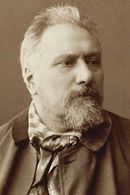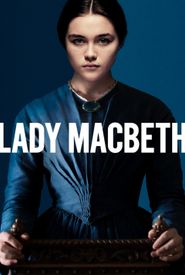Nikolai Leskov was born in 1831 in Gorokhovo, Orel province, Russia, to parents of Russian gentry who owned an estate with serfs. He was a Gymnasium student until the age of 15.
In 1846, his father passed away, and a disastrous fire destroyed the family estate, leaving Leskov's family financially ruined. He then served as a court clerk in Orel and in Kiev.
In 1853, Leskov married Olga Smirnova, and they had two children before separating in 1860. He worked for an English firm, which led him to travel to remote regions of Russia, where he collected material for his writings.
Leskov was deeply influenced by his childhood exposure to folk traditions and legends. He was also shaped by his experience with vernacular speech among peasants, which is reflected in his unique literary style.
Leskov began his writing career in St. Petersburg, where he settled in 1861. He published short stories with moderate liberal messages and traveled to Europe, which strengthened his opposition to Russian conservatives.
His first novel, "Nowhere" (Nekuda, 1864),was written in Prague. Leskov was critical of the Russian Orthodox Church for its rigid conservatism and corrupt clerics, which led to a loss of publishing contracts but did not deter him from his independent views.
Leskov joined Lev Tolstoy in calling for the separation of Church and State, which resulted in his dismissal from the Imperial Department of Education after 10 years of exemplary work. At the time, he was in a civil union with Katherina Bubnova, with whom he had a son, Andrei Leskov, who would later become his biographer and the keeper of his archive.
Leskov was a master of colloquial Russian, and his works explored the dark and mysterious sides of passion, as seen in "Lady Makbeth of Mtsensk" (1865). He also wrote about the religious piety of an Orthodox monk in "Enchanted Wanderer" (Zacharovanny Strannik, 1873).
Leskov's truthfulness and willingness to tackle difficult subjects, such as corrupt clerics and social conditions in Russia, made him a target for attacks from all sides, and he almost became a literary outcast.
Despite this, his masterpiece "Lefty" (The Tale of Cross-eyed Lefty from Tula and the Steel Flea, 1881) was highly regarded by Maxim Gorky and Anton Chekhov, who considered Leskov his teacher.
Leskov died of a rare form of breast cancer that affects men and was buried at the Volkovo Cemetery in St. Petersburg, Russia.















